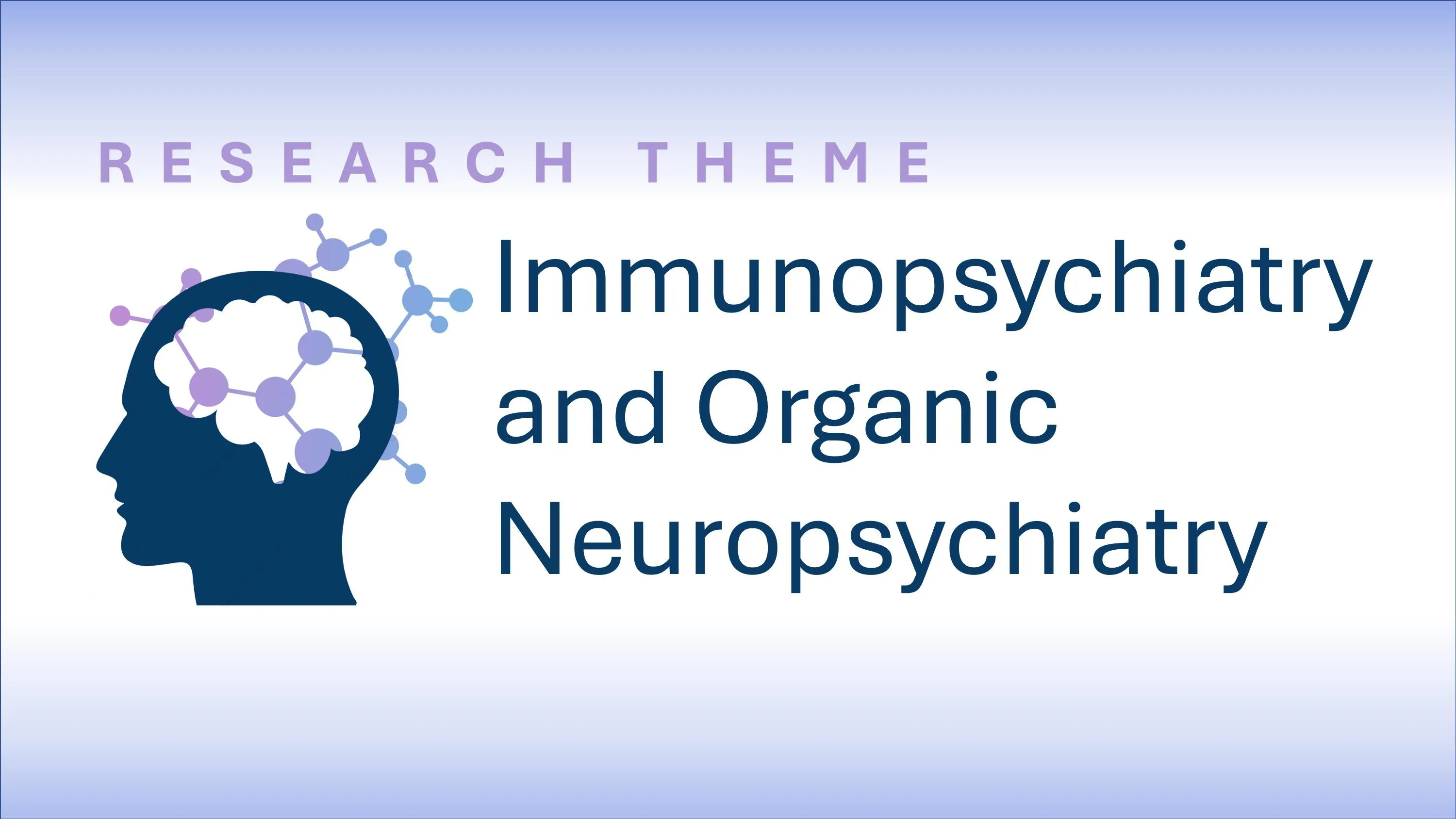Immunopsychiatry and Organic Neuropsychiatry
Aims
This is the Immunopsychiatry and Organic Psychiatry Theme of the IoPPN Neuropsychiatry Research & Education Group.
This theme focuses on better understanding the role of the immune system in the development and treatment of neuropsychiatric symptoms, as well as the mental health consequences of ‘organic’ medical disorders affecting the brain, the immune system and other bodily systems.
Current research
A major research focus is on autoimmune brain diseases, including autoimmune encephalitis and neuropsychiatric lupus. We have an active programme of work seeking to better characterise the neuropsychiatric aspects of these disorders, as well as understand the neurobiological and immunological mechanisms underlying these disorders.
A second major research focus is on the role of autoimmunity and immunological dysfunction in mental disorders, including psychotic disorders, affective disorders, obsessive-compulsive disorder, and neurodevelopmental disorders. In our Wellcome Trust-funded Immunological Mechanisms for Antipsychotic Treatment Response (IMAT) study, we are seeking to understand whether antipsychotic medications are effective in alleviating the symptoms of psychosis in part because of their effects on the immune system. We believe that understanding the immunological effects of these and other existing psychiatric treatments will lead to the rational development of more focused immunological therapies for the treatment and prevention of mental suffering.
We have ongoing projects looking at the neuropsychiatric consequences of systemic (including COVID-19) and central nervous system infections, including the role that infectious exposures might play in the development of neuropsychiatric illness.
Finally, our work seeks to improve the diagnosis and treatment of organic or secondary causes of severe mental illness, including psychosis, catatonia, OCD and mood disorders. We use big data approaches to neuroimaging and electronic case records to develop clinically useful, real-world tools to better identify this subgroup of patients, in whom the required treatment approach may be radically different and for whom misdiagnosis could have significant consequences.
Key theme members and collaborators
External: Graham Blackman, Katharina Schmack, Melanie Sloan, Jonathan Rogers, Angela Vincent, Belinda Lennox, Philip McGuire
Internal: Tim Nicholson, Adrian Hayday, Danish Hafeez, Katharine Lynch-Kelly, Michael Eyre, Chris Wincup, Cameron Watson, Lucy Gibson, Matt Butler, Hamilton Morrin, Sara Simblett



